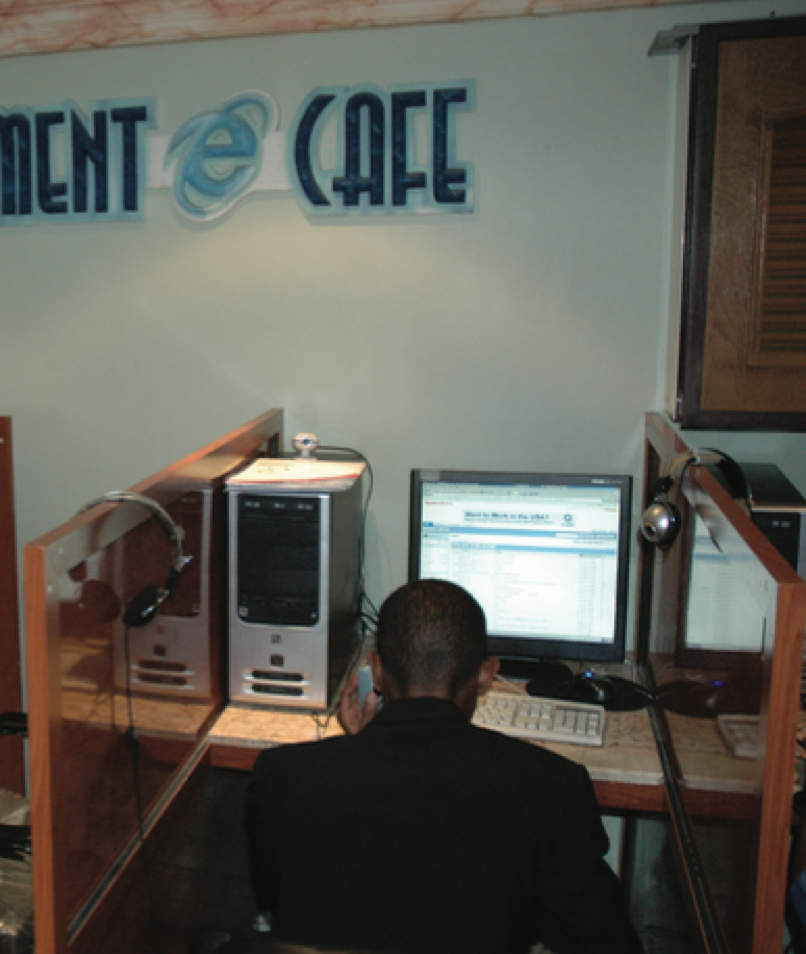Several hundred Kuwaiti trucks a day roll over the Abdaly border crossing into Iraq, where the containers are then transferred onto Iraqi vehicles for the onward journey. Meanwhile, at the Safwan border crossing, only 40 minutes away by car, over 1,000 trucks a day pass through the Virginia-Hobari military camp to enter Iraq.
Such a difference is not an indicator of Iraq’s economic particularities or the security situation. Trade with other immediate neighbors — Syria, Turkey, and Iran in particular — is resurging, with Tehran and Damascus benefiting the most.
What this disparity really shows is that nearly five years after the invasion of Iraq, Kuwaiti cross-border trade is still predominantly traffic for the US military and associated dependents.
This reality runs against the grain of one of the expected economic spin-offs of the overthrow of the Saddam Hussein regime, that Kuwait would become the Gulf’s logistical hub to access Iraq’s emerging market after decades of hostility and minimal economic interaction.
But Kuwait’s barriers to foreign investment, negligible sea and air trade due to infrastructure shortcomings, and overly zealous, yet equally lethargic customs officials who create logistical headaches, are all holding back Kuwait’s transit hub potential.
Bolstering relations
“After the invasion there was a flood of companies coming to base themselves here but after several months they pulled out and went home due to the vague tax and investment laws,” according to Hani Mhanna, the chairman of the Iraq Trade Bureau in Kuwait.
By law, Kuwait requires foreign businesses to be 51% owned by a local investor, as all the GCC countries required in the not-so-distant past. But Kuwait is lagging behind other Gulf countries in revoking such measures, which have been dropped by the likes of the Emirates and Qatar, in efforts to attract FDI and diversify away from oil revenues.
With taxes as high as 45%, and foreign companies faced with paying taxes twice, to the government and the company’s local in-company representation, Kuwait’s draconian FDI laws have also resulted in foreign companies entering into illegal practices to bypass regulations to establish a local presence.
“This taxation on foreign investors is stopping companies from setting up here. It’s been a mess and not enhanced since the 1960s,” Mhanna noted, adding that this has affected cross-border trade with Iraq to the benefit of other countries that have inked bilateral trade agreements with Baghdad.
According to vice president of General Trading and Contracting in Kuwait, Lorie Killingsworth, logistics are coordinated through only a few countries. She said, “Foodstuffs are all from Iran and Turkey. I was surprised. But they are pretty much the only countries that will deal with Iraq.”
Iran has seen trade blossom with Iraq over the past five years, with Iraq’s direct purchases standing in 2007 at $2 billion, and a further $2 billion more in ‘exchanges of kind.’ And this, suggest analysts, is only the tip of the iceberg.
The Islamic Republic has numerous plans in Iraq, including establishing a car plant near Baghdad, funding industrial projects, constructing two 300,000 barrels per day pipelines between Basra and Abadan, as well as building electricity generators in the south. The most recent electric generator in Sadr City is worth $150 million and produces 160 megawatts. Tehran has also signed bilateral trade agreements with Iraq’s Kurds, with trade estimated at $1 billion in the past year.
Turkey, meanwhile, accounts for some $4.9 billion of Iraq’s imports, roughly 23% of the $20.8 billion imported a year. This is primarily with Iraqi Kurdistan, with Turkey accounting for 80% of FDI in the semi-autonomous area.
However, Istanbul is mulling selective economic sanctions against the Kurdish area due to ongoing forays by Kurdish rebel groups based in Iraq against Turkish forces, which prompted multiple military incursions late last year. Further political differences could also flare up again between Iran and Iraq, reaffirming Syria and Jordan as primary transit hubs, with Syria accounting for $4.8 billion (26.9% of all imports) and Jordan $1.3 billion (6.3%) of Iraq’s imports. Damascus has also just secured a lucrative contract to transport Iraqi grain imports and Syrian Trade Minister Amir al-Khalil in November said mutual trade agreements would be “activated”.
Other factors that will shape trade with Iraq could be the division of Iraq into three semi-autonomous regions for Shiites, Sunnis, and Kurds out of the country’s 18 provinces, as put forward in the Iraq Federalism Bipartisan Amendment to the 2008 Defense Authorization Bill in the US.
Iraqi federalism would mean that Kuwait would have to move goods through a Shiite-controlled corridor into Iraq.
On the ground however, this is already the modus operandi. “There is an unwritten code, a Shia truck will not go to the Sunni side, and vice-versa,” said Killingsworth. And although security is better, she added, it is still an issue. “It’s an unknown. You don’t know what’s going on. Recently, two housing units our trucks were carrying vanished, just outside of Basra.”
But once the security situation improves — the ever-present gorilla in the room for Iraqi trade issues — it is expected that traffic will shift from Kuwait’s military border crossing to the commercial side.
“That crossing is untapped and we will see a huge increase in business for Kuwait once there is peace,” believes assistant managing director of Global Logistics Services and Warehousing in Kuwait, Ahmad Hammauda.
Signs that this is slowly underway are evident at the border, with the US Camp Naval Star at the Abdaly civilian border closed down in September. Nonetheless, despite the current geopolitical tensions affecting Iraq’s neighbors, Kuwait, with minimal industry or agriculture, has yet to develop its transport hub status or to sink petrodollars into Iraq.
Killingsworth maintains that “Kuwait’s potential is in financial investment, setting up malls and selling processed foodstuffs, as well as partnerships with the oil ministry. I’m sure M.H. Alshaya [a Gulf retailer for clothing giants H&M and Marks and Spencers] will be there. Kuwait has this over Iran.”
Imports into Iraq (2006)

Iraqi Exports (2006)

By sea, by air, or across the desert?
Political animosity between Kuwait and Iraq has been a prohibitive factor in fostering relations, particularly over their turbulent history, the 1990 invasion, and the widely held notion in Iraq and much of the Arab World that Kuwait is a geographical part of Iraq. However, unlike the hostility between neighbors in other parts of the region, Iraq does have a diplomatic presence in Kuwait and Iraqi politicians have visited the country since 2003.
Hammauda thinks, “The hope is to turn cross-border relations into what they were in the 1950s and 1960s, when Kuwaitis went shopping in southern Iraq, and Iraqis came to Kuwait.”
To turn this hope into a reality, in November 2007 Kuwait earmarked $60-80 billion for infrastructure and construction projects, including airport expansion, road extensions and a North-South GCC railway. One major project will be the $1.2 billion port in Bubiyan Island, northeast of the Kuwaiti mainland and close to the Shatt al-Arab waterway that winds inland to Basra.
“Kuwait should focus on logistics, that’s why Bubiyan is being developed and free zones are at the border. Bubiyan’s location is a gold mine for access to Iraq, Iran, and eastern Saudi Arabia,” according to Hammauda.
However, like the overhaul of Kuwait’s foreign investment laws, the Bubiyan port project has been on the drawing board for years. Foot dragging by a government complacent with high oil revenues has prevented Kuwait’s sea cargo sector from developing, with a public-private joint venture inked in 2005 that should have seen the port completed by 2008. Equally, the viability of the port depends on extensive dredging to remove the mud that is washed down from the Shatt al-Arab, a factor that has prevented deep sea vessels from docking, in addition to the ships sunk and scuttled during the 1980-88 Iran-Iraq War. The downed ships continue to block sections of the northern Gulf.
“Kuwait is not doing a very good job, there are hardly any shippers that come here, as mother vessels go to Dubai then to here,” said Hammauda.
Deciding on whether to use land or sea, he said his company chose the three- to four-day land crossing from Dubai rather than use feeder vessels from the Emirates due to the uncertainty of customs and loading times.
This means, however, that for goods to enter Kuwait or Iraq, they have to cross Saudi Arabia, which has its own associated problems.
“Our biggest problem, outside of security in Iraq, is customs, mainly in Saudi Arabia and Kuwait,” Hammauda believed. “Our second problem is over-protection. There are layers of bureaucracy to check that a container is not smuggling in a bottle of Jack Daniels. Instead of investing in technology, they are increasing bureaucracy,” he added.
There is also the rather paradoxical position of two of Iraq’s potentially biggest trade partners, Saudi Arabia and Kuwait, building US-Mexico border style walls to keep Iraqis out (with Saudi’s slated to cost some $7 billion) while at the same time trying to boost bilateral trade. As Hammauda sees it, “Walls are going up in Kuwait and Saudi Arabia. For us, this will make it more difficult to do business.”
It is perhaps no wonder then that Iraqi-Kuwaiti trade is languishing while Dubai, several hundred kilometers from Iraq, is enticing Iraqi businessmen to the Jebel Ali Free Zone, and air cargo operators are opting for the Emirate rather than charter aircraft out of Kuwait, prompting Killingsworth to comment, “You wouldn’t think of it but Dubai is doing well out of Iraqi business.”














